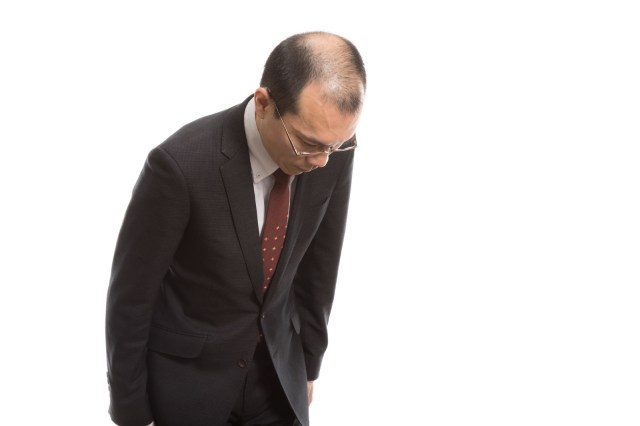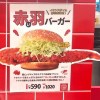
The linguistic error was seen as insensitive in light of a horrific situation.
If you’re a foreigner learning Japanese, then you can expect some leeway when speaking the language. But if you’re the superintendent of Shibata City schools in Niigata Prefecture, then your Japanese had better be impeccable.
Unfortunately that wasn’t the case for Ryoichi Yamada. As superintendent, he was sent to visit the family of a thirteen-year-old male student who had killed himself in June of last year due to relentless bullying. What should have been a heart-wrenching meeting with plans to make changes for the future instead ended up boiling down to one poor choice of words on behalf of the superintendent.
At some point during the conversation with the boy’s father, the superintendent asked: “Omae mo hogoshakai ni kuru ka?” (お前も保護者会に来るか)
The literal English translation of this phrase would be something like: “Are you going to come to the PTA meetings too?” (“PTA meetings” here meaning something closer to parents meeting and discussing policy with school staff.) But a more faithful translation might be something like: “So whaddya think about coming to some PTA meetings, you old rascal?”
▼ That kind of casual speak is not
appropriate for this serious meeting.
For those who don’t know, Japanese has several different words for “you,” depending on who you’re speaking to. There’s the neutral anata, the diminutive kimi, the insulting kisama, and more. You can also just use the person’s name, or not use any pronoun at all, since it’s usually obvious when you’re staring straight at someone that you mean “you.”
Omae, the pronoun that the superintendent used, is a bit of a sharp word for “you,” used for men roughing around with each other, when you’re yelling at a thief, and other less-than-savory situations.
The reason that the superintendent used omae with the father is because he used to be the father’s teacher when he was in elementary school. You can kind of see where he was coming from, perhaps thinking that using the more informal word would bring them closer together. Or perhaps it was a simple slip of the mind.
▼ His use of omae made the news, as you can see here.
(It’s the big red word in brackets in the bottom right at the beginning.)
Either way, the father was not happy with the superintendent’s word choice. He said: “I couldn’t believe (he said it) at that time. It felt like he was making light (of the suicide).”
The superintendent later apologized for his inappropriate utterance, but it was too late. He submitted his resignation a few days later, and will be stepping down from his position next week. The father of the boy has said that even if the superintendent changes, he still wants to work toward actually taking steps toward eliminating school bullying.
Here’s how Japanese Twitter reacted to the situation:
“What is wrong with his head?”
“How does someone like him become a superintendent?”
“Even if he was his old teacher, it doesn’t matter. You should never use omae with someone you’re apologizing to.”
“Using omae with rowdy kids is whatever, but that’s completely different than people you’re working with.”
“I’ve never respected anyone who uses omae to refer to other people.”
At the end of the day, words matter. Whether it’s the pronoun you use to refer to someone, or whether you’re telling them you love them or love them. But what matters even more are actions, and let’s hope that this is the start of something changing for the better in this school system.
Source: Yahoo! News Japan via Hachima Kiko
Top image: Pakutaso


 Seven mistakes foreigners make when speaking Japanese—and how to fix them
Seven mistakes foreigners make when speaking Japanese—and how to fix them Buzzword Awards: Top 10 buzzwords used by Japanese high school girls in 2016
Buzzword Awards: Top 10 buzzwords used by Japanese high school girls in 2016 How should a guy say “I” in Japanese? Japanese women give their opinions【Survey】
How should a guy say “I” in Japanese? Japanese women give their opinions【Survey】 Do you use these “Philippine English” words and phrases?
Do you use these “Philippine English” words and phrases? The Japanese you learn at school vs the Japanese used in Japan【Video】
The Japanese you learn at school vs the Japanese used in Japan【Video】 Japan Extreme Budget Travel! A trip from Tokyo to Izumo for just 30,000 yen [Part 1]
Japan Extreme Budget Travel! A trip from Tokyo to Izumo for just 30,000 yen [Part 1] Japanese drugstore sells onigiri at pre-stupid era prices, but how do they compare to 7-Eleven?
Japanese drugstore sells onigiri at pre-stupid era prices, but how do they compare to 7-Eleven? Japan has only one airport named after a samurai, so let’s check out Kochi Ryoma【Photos】
Japan has only one airport named after a samurai, so let’s check out Kochi Ryoma【Photos】 7-Eleven Japan’s sakura sweets season is underway right now!
7-Eleven Japan’s sakura sweets season is underway right now! Shinjuku izakaya’s all-you-can-eat-and-drink plan is one of Tokyo’s best secret cheap eats
Shinjuku izakaya’s all-you-can-eat-and-drink plan is one of Tokyo’s best secret cheap eats Beautiful blue apple jam is taking the Japanese internet’s breath away!
Beautiful blue apple jam is taking the Japanese internet’s breath away! Starbucks Japan releases first-ever Hinamatsuri Girls’ Day Frappuccino
Starbucks Japan releases first-ever Hinamatsuri Girls’ Day Frappuccino Hey, 2020s kids! The ’90s have a sticker picture message waiting for you in Tokyo
Hey, 2020s kids! The ’90s have a sticker picture message waiting for you in Tokyo Tokyo Skytree turns pink for the cherry blossom season
Tokyo Skytree turns pink for the cherry blossom season “Red Wing Burger” is the newest crazy creation from Japan’s oldest hamburger chain【Taste test】
“Red Wing Burger” is the newest crazy creation from Japan’s oldest hamburger chain【Taste test】 The 10 most annoying things foreign tourists do on Japanese trains, according to locals
The 10 most annoying things foreign tourists do on Japanese trains, according to locals Starbucks Japan releases new sakura goods and drinkware for cherry blossom season 2026
Starbucks Japan releases new sakura goods and drinkware for cherry blossom season 2026 Is Sapporio’s Snow Festival awesome enough to be worth visiting even if you hate the snow? [Pics]
Is Sapporio’s Snow Festival awesome enough to be worth visiting even if you hate the snow? [Pics] Japan has trams that say “sorry” while they ride around town…but why?
Japan has trams that say “sorry” while they ride around town…but why? Highest Starbucks in Japan set to open this spring in the Tokyo sky
Highest Starbucks in Japan set to open this spring in the Tokyo sky Japan’s new “Cunte” contact lenses aren’t pronounced like you’re probably thinking they are
Japan’s new “Cunte” contact lenses aren’t pronounced like you’re probably thinking they are Shibuya Station’s Hachiko Gate and Yamanote Line stairway locations change next month
Shibuya Station’s Hachiko Gate and Yamanote Line stairway locations change next month Yakuzen ramen restaurant in Tokyo is very different to a yakuza ramen restaurant
Yakuzen ramen restaurant in Tokyo is very different to a yakuza ramen restaurant Starbucks Japan adds new sakura Frappuccino and cherry blossom drinks to the menu
Starbucks Japan adds new sakura Frappuccino and cherry blossom drinks to the menu Japan’s newest Shinkansen has no seats…or passengers [Video]
Japan’s newest Shinkansen has no seats…or passengers [Video] Foreigners accounting for over 80 percent of off-course skiers needing rescue in Japan’s Hokkaido
Foreigners accounting for over 80 percent of off-course skiers needing rescue in Japan’s Hokkaido Super-salty pizza sends six kids to the hospital in Japan, linguistics blamed
Super-salty pizza sends six kids to the hospital in Japan, linguistics blamed Starbucks Japan unveils new sakura Frappuccino for cherry blossom season 2026
Starbucks Japan unveils new sakura Frappuccino for cherry blossom season 2026 Foreign tourists in Japan will get free Shinkansen tickets to promote regional tourism
Foreign tourists in Japan will get free Shinkansen tickets to promote regional tourism Take a trip to Japan’s Dododo Land, the most irritating place on Earth
Take a trip to Japan’s Dododo Land, the most irritating place on Earth Naruto and Converse team up for new line of shinobi sneakers[Photos]
Naruto and Converse team up for new line of shinobi sneakers[Photos] Is China’s don’t-go-to-Japan warning affecting the lines at a popular Tokyo gyukatsu restaurant?
Is China’s don’t-go-to-Japan warning affecting the lines at a popular Tokyo gyukatsu restaurant? Survey asks foreign tourists what bothered them in Japan, more than half gave same answer
Survey asks foreign tourists what bothered them in Japan, more than half gave same answer Japan’s human washing machines will go on sale to general public, demos to be held in Tokyo
Japan’s human washing machines will go on sale to general public, demos to be held in Tokyo Starbucks Japan releases new drinkware and goods for Valentine’s Day
Starbucks Japan releases new drinkware and goods for Valentine’s Day We deeply regret going into this tunnel on our walk in the mountains of Japan
We deeply regret going into this tunnel on our walk in the mountains of Japan Studio Ghibli releases Kodama forest spirits from Princess Mononoke to light up your home
Studio Ghibli releases Kodama forest spirits from Princess Mononoke to light up your home Major Japanese hotel chain says reservations via overseas booking sites may not be valid
Major Japanese hotel chain says reservations via overseas booking sites may not be valid Put sesame oil in your coffee? Japanese maker says it’s the best way to start your day【Taste test】
Put sesame oil in your coffee? Japanese maker says it’s the best way to start your day【Taste test】 No more using real katana for tourism activities, Japan’s National Police Agency says
No more using real katana for tourism activities, Japan’s National Police Agency says Japanese schools banning nicknames, mandating use of -san divides opinions
Japanese schools banning nicknames, mandating use of -san divides opinions Students confused over Japanese school banning ponytails for “conjuring lustful feelings”
Students confused over Japanese school banning ponytails for “conjuring lustful feelings” How to enjoy Japanese idol music if you hate its sweetness: Pretend they’re not singing about YOU
How to enjoy Japanese idol music if you hate its sweetness: Pretend they’re not singing about YOU Why Japanese doesn’t need swear words
Why Japanese doesn’t need swear words Why do kids in Japan use those large leathery “randoseru” school bags?
Why do kids in Japan use those large leathery “randoseru” school bags? Awesome Japanese elementary school teacher rewards kids who use independent learning on his tests
Awesome Japanese elementary school teacher rewards kids who use independent learning on his tests The simplest, most direct way to protect your umbrella from being stolen in Japan
The simplest, most direct way to protect your umbrella from being stolen in Japan Japanese Internet sad to see the word “chikan” becoming commonly used in English
Japanese Internet sad to see the word “chikan” becoming commonly used in English Say sayonara to “sayonara” – 70% of Japanese people don’t use this word for goodbye anymore
Say sayonara to “sayonara” – 70% of Japanese people don’t use this word for goodbye anymore Words they don’t teach you in Japanese class: How to say “straw man” in Japanese
Words they don’t teach you in Japanese class: How to say “straw man” in Japanese To –san or not to –san? Should you use the Japanese honorific suffix when speaking English?
To –san or not to –san? Should you use the Japanese honorific suffix when speaking English? Japanese elementary school student teaches us all how to pronounce English like a native speaker
Japanese elementary school student teaches us all how to pronounce English like a native speaker 11 different ways to say “father” in Japanese
11 different ways to say “father” in Japanese 10 stories of Japanese high school girls and their puzzling, laughable behaviors
10 stories of Japanese high school girls and their puzzling, laughable behaviors Majority of surveyed Japanese teens don’t call parents by standard Japanese words for mom and dad
Majority of surveyed Japanese teens don’t call parents by standard Japanese words for mom and dad